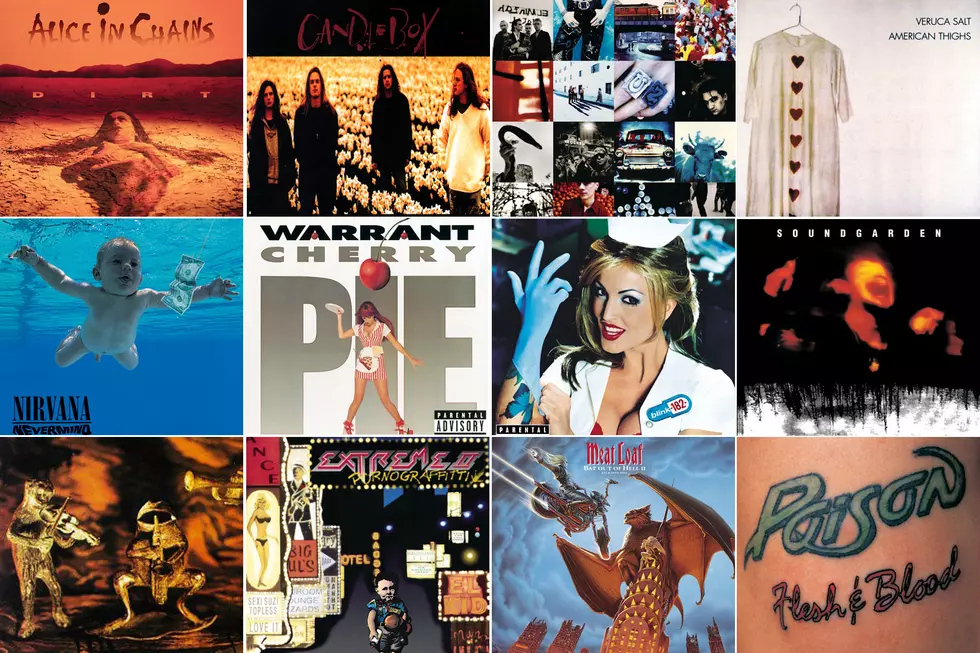
Alice In Chains’ ‘Rainier Fog’ Adds To Their Dark Legacy: Review
A few months ago, Alice In Chains played New York's Hammerstein Ballroom. After opening with "Love, Hate, Love" from their classic debut, 1990's Facelift, they launched into "Check My Brain," from 2009's Black Gives Way to Blue, their first album with singer/guitarist William DuVall. It was welcomed with enthusiastic roars from the packed house, just as the prior song had; it got as much love as the next few songs: "Again," "Them Bones" and "Dam That River." Through the rest of the night, songs from the DuVall era -- let's call it "Alice In Chains Mk. II" -- including "Hollow," "Voices" and "Your Decision," got as much love as the songs from the "Mk. I" lineup.
Black Gives Way to Blue and 2013's The Devil Put Dinosaurs Here set a gold standard for legendary bands replacing a lead singer. As with Black Sabbath, when they replaced Ozzy Osbourne with Ronnie James Dio, and Van Halen when Sammy Hagar succeeded David Lee Roth, DuVall's albums should be seen as a completely different phase of the band, even though he sounds more like his predecessor than Dio and Hagar did.
Rainer Fog, the band's latest album, and their third with DuVall, might be Alice In Chains Mk. II's finest album yet.
The album kicks off with "The One You Know," which the band released in May; it's somewhat reminiscent of "Grind," but better. The chugging guitars and the thudding beat, courtesy of powerhouse drummer Sean Kinney, is classic Alice, as are the harmonizing vocals of Jerry Cantrell and DuVall, as they sing, "I'm not the one you know!"
The title track picks up the pace and could rank among the band's best songs. Cantrell and DuVall have become such a good vocal team, it's sometimes difficult to determine where one voice ends and the other begins (this has always been the case with AIC and is why Cantrell is somewhat under-appreciated as a lead vocalist).
"Fly" is another highlight (there are many on the album), and sees the band turning down the distortion; the DuVall/Cantrell vocal team really shines here. It would be interesting to hear this lineup do a full album in this style, a la Mark I's Sap and Jar of Flies. "Drone," meanwhile, sees them at their most Sabbath-y, and it's one of Mike Inez's coolest bass lines on the album.
The anthemic "Never Fade" was partially inspired by the passing of Chris Cornell. The lyrics are vague, but when Cantrell and DuVall sing "Never far away I always see you / When it all goes dark you light my way through" it is a reminder that fallen artists' songs have a huge impact after they're gone (it also recalls Cornell's Scream-era "Never Far Away" lyrics, which are much more haunting in retrospect: "Whenever I come, whenever I go
/ you're never far away.")
"Living the past you find out it's hard to stay sober." Those lyrics come from the title track. With an album this strong, Alice In Chains prove that they can look back to the past, but they don't have to live there. The present suits them just fine. They came from a time that was much friendlier to rock bands; AIC and many of their Lollapalloza-era peers regularly were in high rotation on MTV (when it mattered) and topped the Billboard charts; it's obviously a completely different landscape today. But even if lighter-hearted pop-friendly songs are at the center of pop culture today, Cantrell and the band still look, unflinchingly, at the darkest parts of their souls. Their music, as always, matches that mood. They might question it in their own lyrics, but they're still the ones we know.
On the aforementioned "The One You Know," Cantrell asks, "Does it matter if I'm still here, or I'm gone?" Regardless of his music, of course, the answer is "yes." It's cool that he and his band are still making music that holds up to their legacy.
Top 90 Hard Rock + Metal Albums of the 1990s
More From Loudwire









